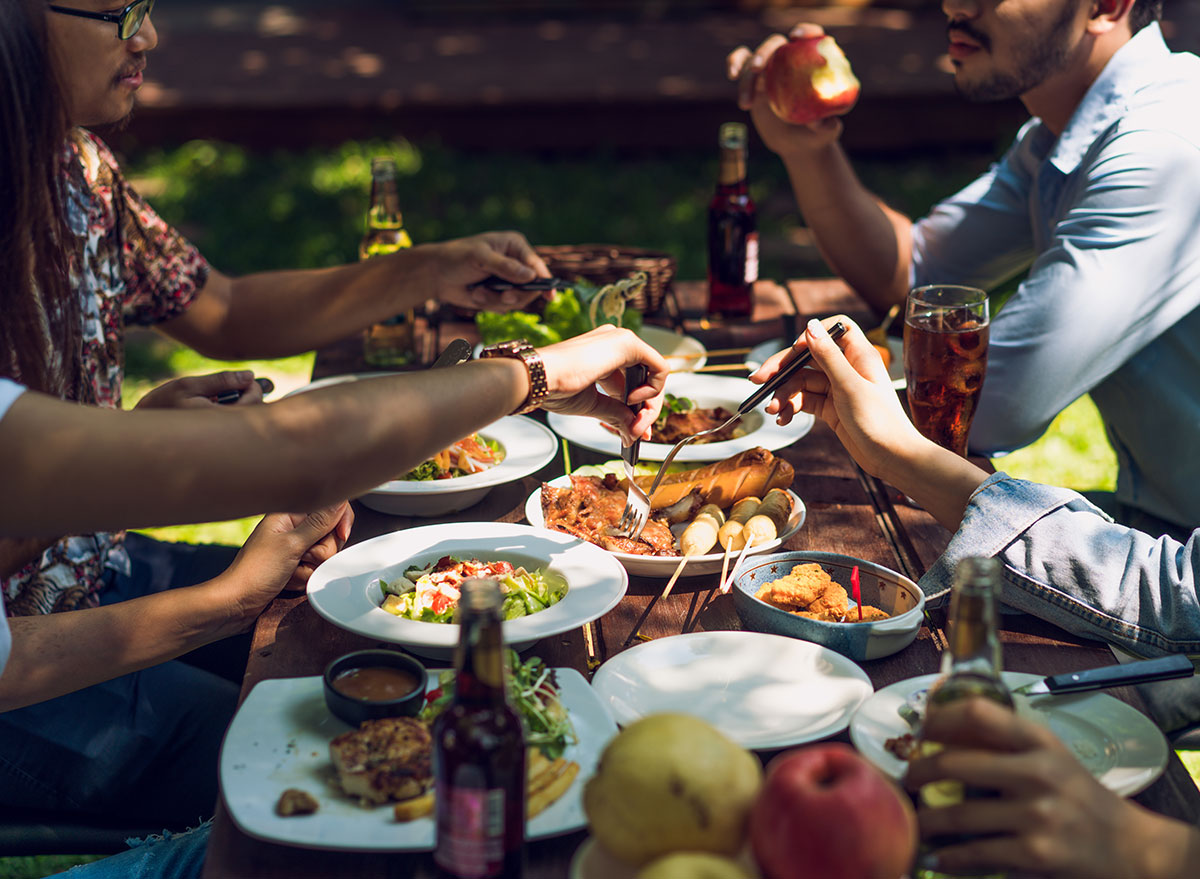How to avoid common mealtime mistakes:
When we perform the same small tasks every day, we may not always be aware that we have developed negative habits. It can be particularly difficult to eat the right items in the right ways at the appropriate times. It's easy to make mistakes than you may think—eating too quickly, chewing loudly, and pouring our cups directly from a cafetière are just a few examples. We examine the habits that need to change, as well as some practical tips to make mealtimes more enjoyable and healthful (for everyone).
Skipping breakfast:
We understand that mornings can be really busy. You're really missing a trick, though, if your pre-work schedule doesn't include time for a healthy breakfast. You get more energy to tackle the day when you eat breakfast, and if you skip it, you're more inclined to overeat later. If you're really short on time, try preparing a nutritious smoothie for yourself or stock up on fruits and yogurt that you can carry with you.
Chewing noisily:
It's common knowledge that loud eating is one of the most disliked eating behaviours. Misophonia is a phobia of repeating noises that can cause anxiety and trigger a reaction similar to the "fight or flight" reflex in those who have it. Thus, try to eat as quietly as you can, be courteous, and shut your mouth.
Restricting yourself too much:
It's crucial to keep up a good, balanced diet, but try not to put too much restriction on yourself. You're more prone to binge if you feel like you can't enjoy the occasional indulgence since you'll have desires that are nearly impossible to resist. Thus, go ahead and reward yourself occasionally, but always keep in mind to "everything in moderation."
Eating on the move:

Research that was published in The American Journal of Clinical Nutrition have shown that eating while distracted—whether by working, strolling, or watching TV—will encourage you to consume more both during and after the meal. Even though it can be challenging, eating mindfully—that is, sitting down and paying attention to the food in front of you—is probably better for your health and waist size.
Emotional eating:
It can be tempting to eat an excessive number of salty snacks, raid the freezer for some ice cream, or bury your sorrows in chocolate when you're having a rough day. Even though this coping mechanism could make you feel better momentarily, it's not good for your diet. Instead, look for another way to decompress, like going for a walk or working out.
Seasoning with salt without tasting food first:
It's common tendency to grab the salt and pepper before eating the cuisine. Try before you apply, even though you can certainly add more spice if necessary. The majority of us already consume excessive amounts of salt; British people, for instance, consume an average of 0.3 oz (about 8g) of salt daily, as opposed to the 0.2 oz (6g) advised. Blood pressure might rise as a result of excess.
Going hotter than you can handle:
You might not appreciate the dinner if you choose the spicier curry on the menu. In moderation, chilli tastes delicious and can temporarily speed up your metabolism, but too much of a good thing can burn your tongue and make you uncomfortable. In an investigation aimed at understanding why chilli is so fulfilling, it was discovered that the explanation was not the hormones that control hunger, but rather the symptoms like bloating and nausea that make individuals refuse to eat.
Eating out too often:

Stop dining out so much. It's a simple approach to be kind to both your health and your pocketbook. Even though the food at your favourite restaurants may taste amazing, it's generally high in calories and salt, which can lead to bloating, thirst, and a brief spike in blood pressure. Instead, make an effort to carve out time to prepare your favourite restaurant dishes at home.
Serving yourself from the table:
Even while family-style meals promote camaraderie, there may be health risks associated with this method of presenting food. People eat more when food is laid out on the table for everyone to enjoy since everything is so easily accessible. However, you're less likely to cave in to temptation if you and your dinner friends have to get up to fetch seconds.
Eating too late at night:
Though the evidence is far from conclusive, some studies indicate that those who eat later in the day typically have lower health. Eating more calories early in the day, when you have the opportunity to be active, appears to make sense. Eating earlier in the day will also assist avoid indigestion later in the evening. The Cleveland Clinic states that you should wait at least three hours after eating before going to bed in order to prevent heartburn. Aim for no more than 500 calories and 0.7 oz (20g) of fat in your evening meal.

